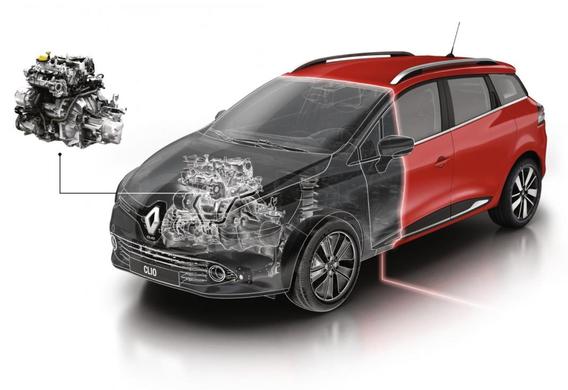
Before most of the car enthusiasts who care about the state of their cars, sooner or later, the question is, "Do we need to wash the engine of your car?" If so, how do you do it? Would such a procedure harm the working characteristics of the aggregate? And anyway, is it really necessary for the car wash? The reasons we need to drive the engine
The reasons we need to drive the engine
Engine pollution occurs for several reasons. First of all, because antifreeze and other evaporative fluids are partially settled on the surface of the engine and mixed with dust. Oil contamination also occurs in the case of oil. The longer the lifetime of the car, the more polluting the engine.
The formation of "dirt" on the engine walls is inevitable, even with the use of high-quality oil with a package of detergents. In the case of severe pollution, serious problems may arise requiring expensive repairs.
First, the dirty engine is overheating faster, because any pollution leads to deterioration of heat. Secondly, due to the high temperature in the oiler system, the viscosity of the oil is reduced, which in turn increases the wear of the engine parts. In other words, the dirty engine is getting out of line. Third, if the pads give a leakage (e.g. from a cylinder block), then the oil stains will be formed under the hood. Smolting spots, and hot, can easily ignite. Fourth, because of the massimization, electrical wiring may be out of order. Fifthly, it is harder to diagnose a malfunction in a dirty drive.
Finally, the reason that does not affect engine performance is aesthetic: it is desirable to wash the engine if the car is planned to be sold, because the dirty engine is capable of producing an unpleasant impression.
Adverse effects of the wash
Since the electron engine "stuffing" of the engine compartment is modern, there is a possibility of damage or incapacitating it.
If the wash is flammable (solvents or special means for washing up the engine), there is an increase in the probability of ignition, sometimes directly in the wash process. The possibility of fire is also great if used for drying of electric heating devices (fan, hairdryer, etc.). A lack of drying is no less dangerous, as everyone knows how to threaten wet wiring. If the engine is running until the cleaning product or water is completely removed, the risk of a short circuit for electrical devices increases.
In addition, it should be remembered that diesel engines are capable of working even after full motor immersion into the water, while the petrol members are more "caprices": they react negatively on the penetration of moisture.
Some manufacturers (Peugeot, Toyota, etc.) indicate that we are not allowed to drive the engine. This is due to the high sensitivity to the moisture of certain engines. For example, the Toyota JZ motor (especially in DIS-3) or the Peugeot 307 engine. It is understood that the washing of the water under the great pressure of the water is contraindicated. But the Russian man likes to experiment, so there are many stories in the car forums about how, despite the manufacturer's ban, some of the most desperate are all at risk of washing.
The better the engine
Of course, the usual detergent for the wash of the engine is not a good one. To avoid damage to the engine, special fluids must be used. Two main types of engine wash can be distinguished: universal and specialized.
Universal is liquid detergents (shampoo). They are suitable for the removal of different contaminations from both the motor surface and the surface of the body.
The specialized means are for some type of pollution (dust, oils, etc.) and for a particular part of the vehicle (e.g. engine).
As noted above, the use of solvents or solvents is not desirable because of a fire risk.
Is it possible to wash the engine alone
Theoretically, it's possible. However, it is important to bear in mind the likely consequences and to comply with certain recommendations.
We only need a warm and dry engine. All electrical contacts must be protected by dense polyethylene and rewound. Then we need to do the detergent, wait for 10 minutes, and then we'll take the foam.
Separate attention needs to be given to the hundreds of the radiator in which many leaves, dust, etc. In hard-to-reach and contaminated sites, you need to pass a brush or brush that is soaked in a detergent solution. All the foam has to be washed away.
Then the engine must be drained: it can be used by a compressor or an ordinary vacuum cleaner.
It is especially necessary to thoroughly dry all the electrical connections and make contacts. You can also twist coils and candles and dry them separately. After drying all electrical contacts, it is recommended to process the anticorrosive aerosol. At the end of the procedure, the engine must be dry for 2-3 hours.
Pair washing
There is also an alternative to the traditional method of washing the engine-wash. Such a washing shall use a high pressure (8 atmosphere) dry-heated steam (up to 160 degrees). First, by using this method, the engine is cleaned even without the use of chemicals and detergents, and secondly, there is no moisture in the places of electrical contacts. The couple can only be trained by qualified employees because of the likelihood of serious injuries. Less such technology is the complexity and high cost.
car wash
Most motorists prefer to trust the engine of their car to professionals with special equipment, as well as experience in this "difficult case".
The washer technology is simple enough. All the ignition and electrical components that are under the bonnet shall be carefully wrapped with plastic sheeting and taped. The engine shall then be supplied by the water supplied by the hose at a high pressure. A special solution is then sprayed over the blowing agent through the blowing agent. The foam that was formed has excellent penetrating properties and easily removes any oil stains. Then the engine is washed away by the water and the air is dry again.
After this procedure, the engine is completely cleared. But the motorists need to understand that the cons mentioned above may also arise after "professional" service wash. Although, of course, this is much less likely.
To wash or not to wash the engine, each owner decides individually. If the autoenthusiasts are confident in their own power, you can wash the engine yourself. But it is better to turn to the service (although they do not provide a full guarantee), and it is desirable to have some recommendations from other motorists. The main guarantee of quality in this case should be the reputation of the master.







